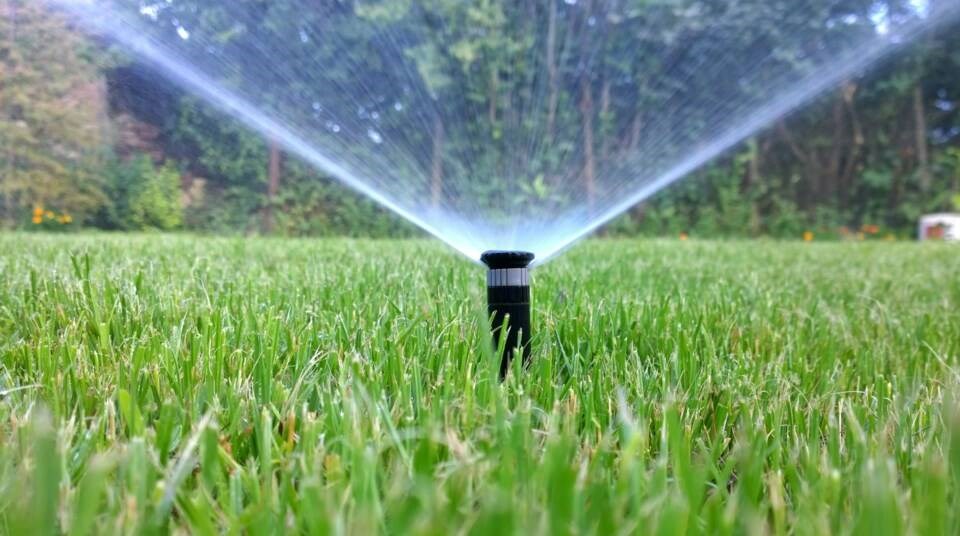Author Walt Whitman believed “a leaf of grass is no less than the journey-work of the stars.” A more contemporary author, Michael Pollan, called a lawn “nature under totalitarian rule.”
June-uary has gone and the dog days of July bring the dry, sizzling heat to singe the verdant lawns of the North Shore. Which can cause us grief. After all, “lawns are a form of theatre,” wrote Tom Christopher, the renowned gardening author, of the pride of ownership. “What happens in the front yard is only a performance.”
Despite a healthy water supply from our Capilano, Seymour and Lynn Valley reservoirs on the North Shore, we find ourselves routinely moving into more stringent Metro Vancouver water restrictions based on a system of conservation, sustainability and fairness.
Lately our place in Metro feels like we’re doing more than our share – think wastewater plant financing – but the rules are what they are. Only, not quite, not if the rules are hollow. It’s a bit like that Seinfeld restaurant scene: we can create the restrictions, we just can’t enforce the restrictions.
At the moment we’re in the mild Stage 1 period: lawn watering at even-numbered addresses on Saturday mornings, odd-numbered addresses Sunday mornings – 5-7 a.m. with the automatic sprinklers, 6-9 a.m. manually. (Trees, shrubs and flowers can be watered any day, 5-9 a.m. by sprinkler, any time by hand, with edible plants exempted.)
It’s when we get to Stage 2 – as I suspect we will shortly – that the serious cat-and-mouse game begins. (Spoiler alert: the mice win.) That stage prohibits any lawn watering and we get into what one municipal official called the “golden” season of our lawns. Mine looks more bronze than golden, and it has already crossed the finish line.
I’ve concluded it’s the end of the lawn as I’ve known it. Our climate is sufficiently changing to bring about heat and Stage 2 restrictions with regularity, so my mowing season is May, June and part of July. I’ve amortized my recent lawn mower purchase to about the cost of my haircut per grass cut.
Water consumption soars in summer by about 50 per cent, and we use 60 per cent of our water outdoors. As anyone can see, it’s evident some of us think it’s an inalienable right to water as we wish, whatever the rules. The grass is a nice look, the defiance is not.
I asked North Shore municipalities what fines were imposed last year. It was hardly a crackdown.
Remember when we learned that the District of West Vancouver sent 500 letters to homeowners when we got into Stage 2? Well, either the offenders massively obeyed or the municipality massively couldn’t catch them in the act of defiance, or it didn’t think it was important. All told, 10 tickets were issued, and four were successfully appealed, meaning West Vancouver reaped a whopping bounty of $1,200 from six owners (maximum fines are $100 for a first offence, $200 for a second offence, so these were repeat offenders).
The District of North Vancouver took it more seriously. Bylaw officers issued 94 warnings and 42 friendly reminders to residents while Stage 1 and Stage 2 of Metro Vancouver’s watering restrictions were in effect. It issued five Stage 1 tickets and 30 Stage 2 tickets resulting in $8,550 in fines.
The City of North Vancouver received 159 complaints – 41 during Stage 1, 118 during Stage 2, and issued three tickets and 14 warnings in Stage 1 and 21 tickets and 28 warnings in Stage 2. The haul was $2,800.
Metro Vancouver has a “summer support program” with a “summer surveillance program” feel to it – students walking around neighbourhoods, identifying offenders for bylaw officers, spreading some education when they can.
But really, we should admit we lack any political will around this and give up the pretence of communities committed to conservation. I agree, fines aren’t the only way to compel compliance, but when the entire North Shore collects less than $13,000 from transgressors, we know full well that’s a tiny fraction of infractions. If this is how we’re going to preach the importance of conservation, why should anyone heed the rules?
Kirk LaPointe is a West Vancouver columnist with an extensive background in journalism. His column on North Shore issues runs bi-weekly.



